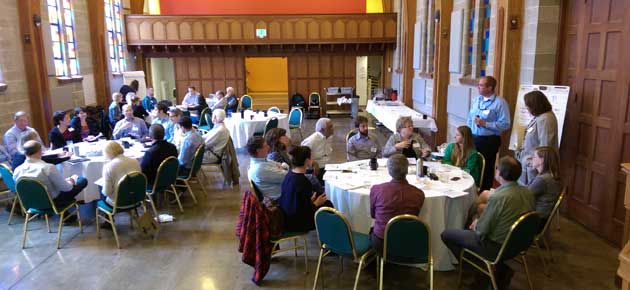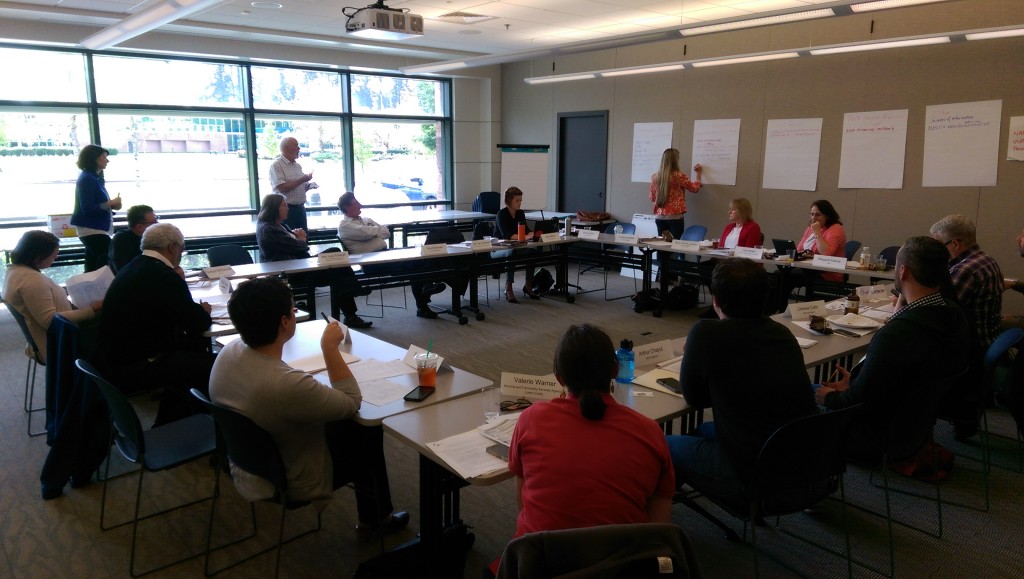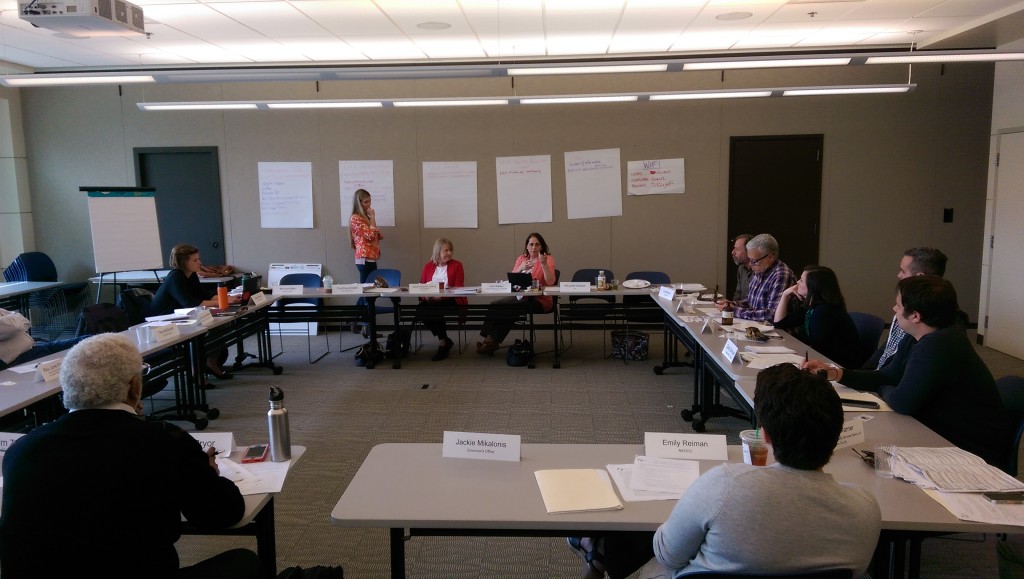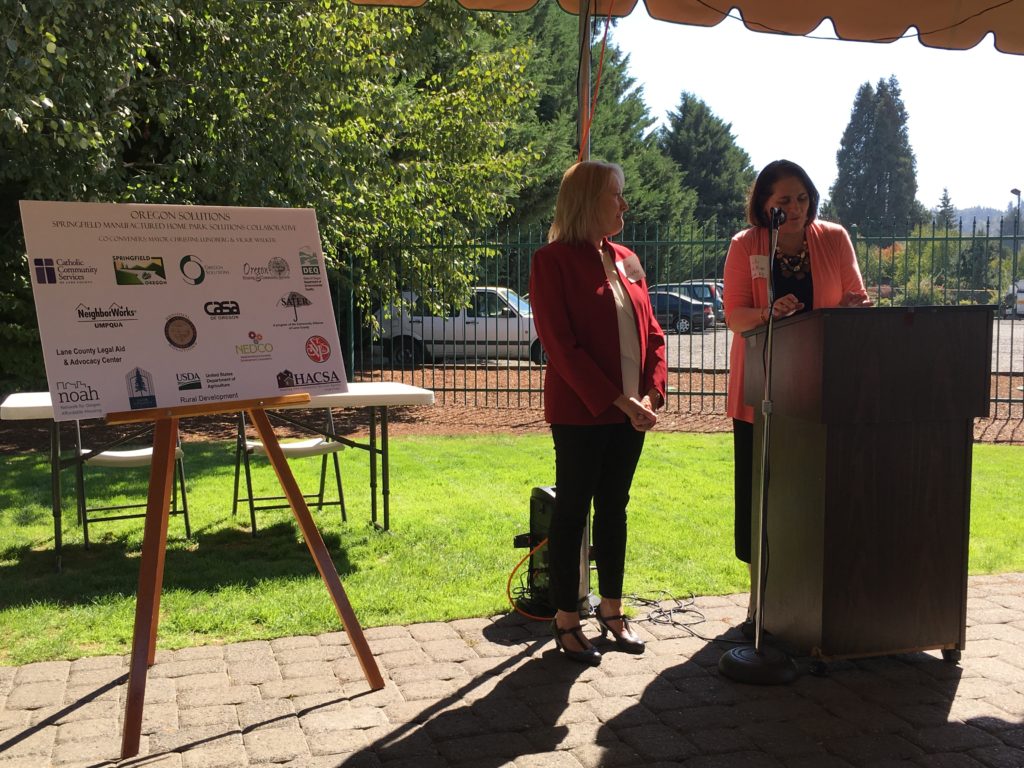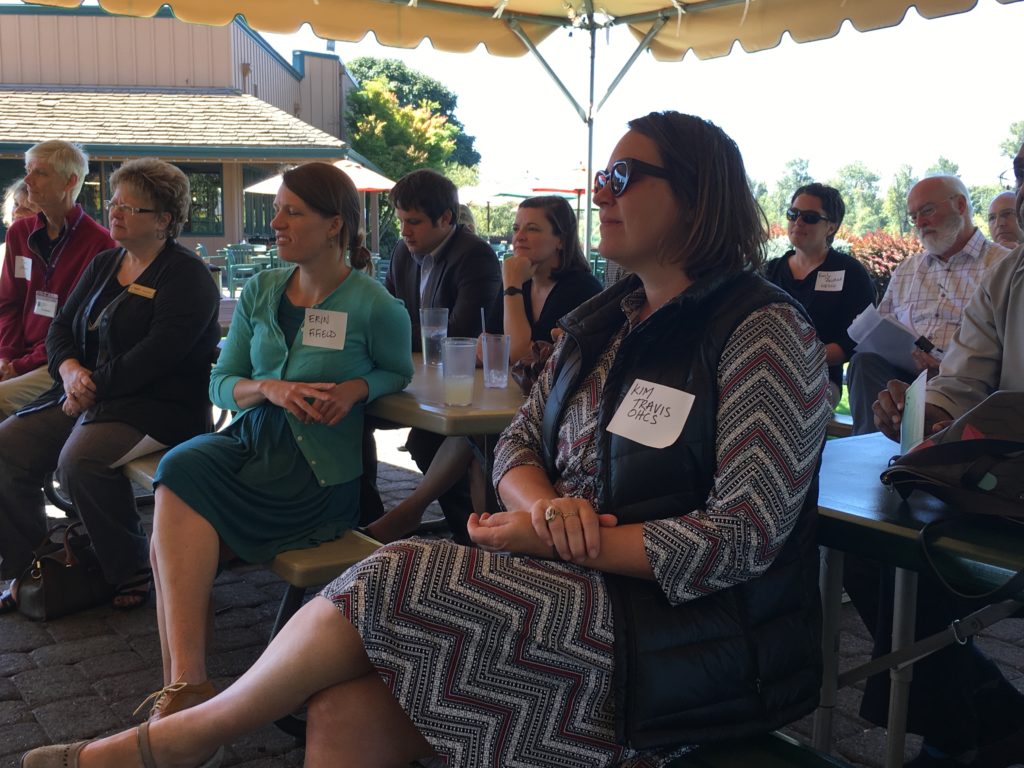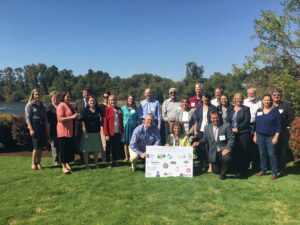 The Oregon Solutions project brought together a team of public, private, and civic partners to work toward innovative solutions to assist residents, owners, and renters who are living in mobile homes in parks in substandard conditions or who face being evicted as a result of redevelopment pressures. The collaborative aimed to create a social service assistance response that will help local communities understand what opportunities might be available to improve or replace homes or park infrastructure, to move homes to new sites, or to provide assistance in relocation or housing searches for park residents.
The Oregon Solutions project brought together a team of public, private, and civic partners to work toward innovative solutions to assist residents, owners, and renters who are living in mobile homes in parks in substandard conditions or who face being evicted as a result of redevelopment pressures. The collaborative aimed to create a social service assistance response that will help local communities understand what opportunities might be available to improve or replace homes or park infrastructure, to move homes to new sites, or to provide assistance in relocation or housing searches for park residents.
Governor’s Designation Letter (PDF)
Declaration of Cooperation (PDF)
Problem Statement
Springfield is an example of an Oregon community grappling with a large population of residents (estimated 1,400 households) facing a strong risk of displacement. Such communities are often ill-equipped to sufficiently serve displaced residents in finding new homes after a manufactured home park closure.
Process
The City of Springfield initiated stakeholder meetings with assistance from Oregon Solutions and the South Valley/Mid-Coast Regional Solutions Center. These conversations resulted in the desire for an impartial collaborative approach to assisting residents, owners, and renters living in manufactured home parks who risk being evicted or displaced as a result of redevelopment pressures or other circumstances outside of their control. Following a request by the City of Springfield (the project sponsor), Oregon Solutions completed its assessment and asked that the “Manufactured Home Park Solutions Collaborative” be designated as an Oregon Solutions project. On December 11, 2015, Governor Brown designated the collaborative an Oregon Solutions project and selected Springfield Mayor Christine Lundberg and Vicki Walker, Oregon State Director, as the co-conveners.
Solution
The members of the group signed a Declaration of Cooperation documenting their commitments to address the housing issues.
Results
The Oregon Solutions process led to development of a housing and social service assistance response which is coordinated and ready for implementation. A formal action plan and “tool kit” enables a jurisdiction faced with notice of park closure to provide relocation options, such as a “decision tree,” which would help local communities understand what opportunities might be available to improve or replace homes or park infrastructure, move homes to new sites, or provide assistance in relocation or housing searches for park residents.
Additionally, the Oregon Field Office of the US Department of Housing and Urban Development has designated Springfield and Eugene as the focus of its two-year Community Needs Assessment program. As part of this initiative, HUD has identified distressed manufactured home parks as a key engagement area. Similarly, the South Willamette Valley/Mid-Coast Regional Solutions Advisory Committee designated the project of addressing manufactured home park issues within the region as a Regional Solutions’ priority.

